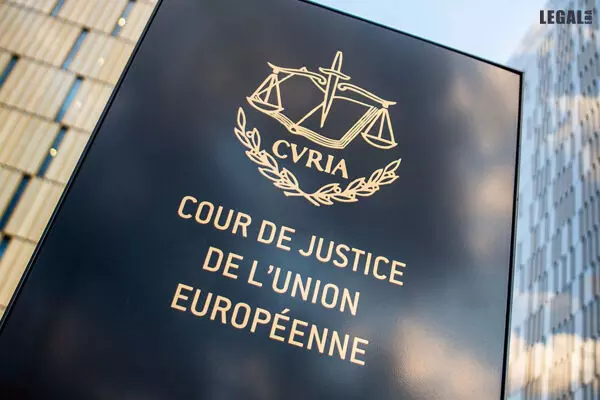- Home
- News
- Articles+
- Aerospace
- AI
- Agriculture
- Alternate Dispute Resolution
- Arbitration & Mediation
- Banking and Finance
- Bankruptcy
- Book Review
- Bribery & Corruption
- Commercial Litigation
- Competition Law
- Conference Reports
- Consumer Products
- Contract
- Corporate Governance
- Corporate Law
- Covid-19
- Cryptocurrency
- Cybersecurity
- Data Protection
- Defence
- Digital Economy
- E-commerce
- Employment Law
- Energy and Natural Resources
- Entertainment and Sports Law
- Environmental Law
- ESG
- FDI
- Food and Beverage
- Gaming
- Health Care
- IBC Diaries
- In Focus
- Inclusion & Diversity
- Insurance Law
- Intellectual Property
- International Law
- IP & Tech Era
- Know the Law
- Labour Laws
- Law & Policy and Regulation
- Litigation
- Litigation Funding
- Manufacturing
- Mergers & Acquisitions
- NFTs
- Privacy
- Private Equity
- Project Finance
- Real Estate
- Risk and Compliance
- Student Corner
- Take On Board
- Tax
- Technology Media and Telecom
- Tributes
- Viewpoint
- Zoom In
- Law Firms
- In-House
- Rankings
- E-Magazine
- Legal Era TV
- Events
- News
- Articles
- Aerospace
- AI
- Agriculture
- Alternate Dispute Resolution
- Arbitration & Mediation
- Banking and Finance
- Bankruptcy
- Book Review
- Bribery & Corruption
- Commercial Litigation
- Competition Law
- Conference Reports
- Consumer Products
- Contract
- Corporate Governance
- Corporate Law
- Covid-19
- Cryptocurrency
- Cybersecurity
- Data Protection
- Defence
- Digital Economy
- E-commerce
- Employment Law
- Energy and Natural Resources
- Entertainment and Sports Law
- Environmental Law
- ESG
- FDI
- Food and Beverage
- Gaming
- Health Care
- IBC Diaries
- In Focus
- Inclusion & Diversity
- Insurance Law
- Intellectual Property
- International Law
- IP & Tech Era
- Know the Law
- Labour Laws
- Law & Policy and Regulation
- Litigation
- Litigation Funding
- Manufacturing
- Mergers & Acquisitions
- NFTs
- Privacy
- Private Equity
- Project Finance
- Real Estate
- Risk and Compliance
- Student Corner
- Take On Board
- Tax
- Technology Media and Telecom
- Tributes
- Viewpoint
- Zoom In
- Law Firms
- In-House
- Rankings
- E-Magazine
- Legal Era TV
- Events
General Court Holds European Commission Responsible For Redacting Facts Of Covid-19 Vaccine Deal

General Court Holds European Commission Responsible For Redacting Facts Of Covid-19 Vaccine Deal
It can challenge the ruling until September and appeal before the Court of Justice of the European Union
The European General Court (EGC) has held the European Commission responsible for incorrectly redacting facts of the multi-billion euro deals to secure Covid-19 vaccines during the coronavirus pandemic.
It added that the Commission failed to demonstrate how divulging indemnification details would harm the commercial interests of the pharmaceutical groups supplying the vaccines. It also failed a ‘public interest’ test by keeping the names of the European Union (EU) officials involved, secret.
The ruling is a victory for the EU lawmakers and individuals who demanded to know about the 2.7 billion euros ($2.95 billion)) worth of Covid vaccine purchase agreements that the Commission negotiated in 2020-2021.
President Ursula von der Leyen, who runs the Commission, has also been in trouble for allegedly keeping a secret and deleting the correspondence with the boss of Pfizer on vaccine purchases. She had offered only the redacted versions of the signed contracts.
The Commission had argued that releasing the blacked-out details would jeopardize its commercial relationship with pharmaceutical companies. This involved liability and indemnification in the eventuality of vaccine defects. It had refused to disclose the identities and texts used by its team members who negotiated the deals.
However, the EGC upheld the lawsuits lodged for seeking access to those details ‘in part’ and ‘annulled’ the Commission's decisions on irregularities.
The court stated, "The Commission did not demonstrate that wider access to those clauses would undermine the commercial interests of those undertakings.”
It noted that people behind the lawsuit demonstrated public interest in gaining access to the personal details of the vaccine-negotiating team of the Commission.
The EGC added, "It was only by having the names, surnames and details of the professional or institutional role of the members of the team, that it could be ascertained whether or not they had a conflict of interest.”


